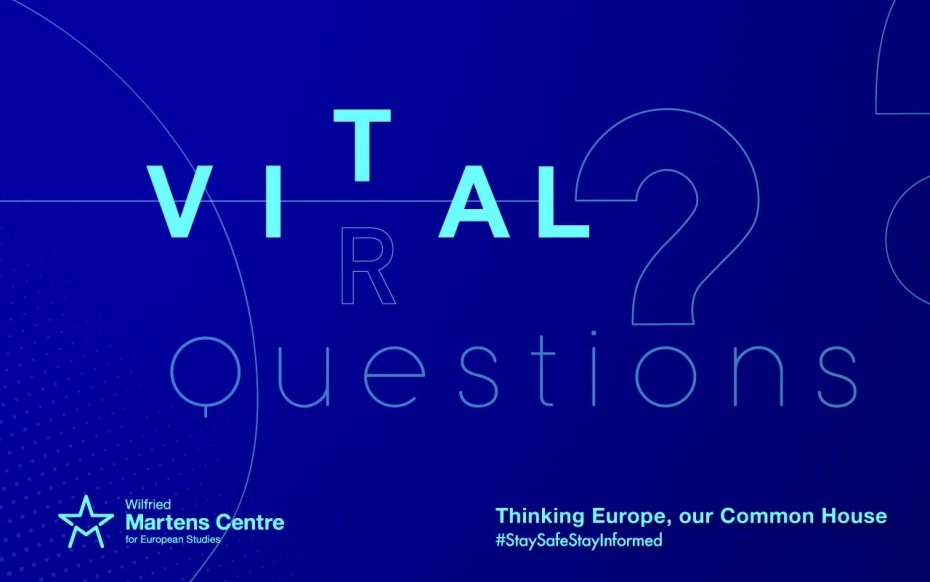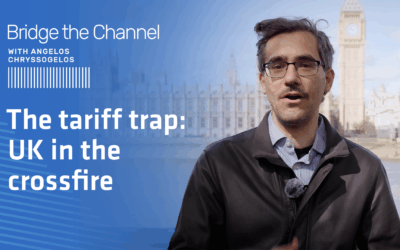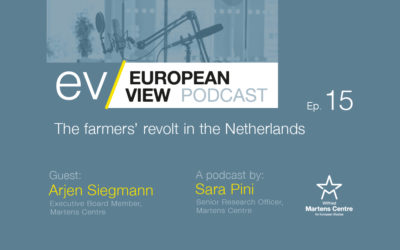How is the COVID-19 crisis affecting EU legitimacy?
08 July 2020

Will populism turn out to be one of the ‘victims’ of the COVID-19 pandemic, as many commentators have claimed?
Angelos Chryssogelos, Assistant Professor in Politics and International Relations, London Metropolitan University:
“I don’t think the question of populism should be treated in binary terms, i.e. will it go up or down after the crisis. The pandemic will be bad for certain populists while providing opportunities for others. We need only think back ten years to the Great Recession: the economic crisis boosted left-wing populism – up until then a marginal force – in countries like Spain and Greece, while established populist parties like the FN in France failed to capitalise on it. It now appears that the pandemic will be bad for some populists like Trump while others, like Erdoğan in Turkey and PiS in Poland, may overcome it. I think that Europe dodged a major bullet with the Five Star Movement in Italy. The pandemic crisis would be an ideal event for a non-ideological populist party dominated by conspiracy theorists, anti-vaxxers, and generally unstable characters. Luckily, the 5SM is in government during this crisis, so it no longer has the credibility to express these feelings. Nevertheless, I think this provides a blueprint for anti-establishment politics in an era when vaccines and tracing apps will be major policy issues, and I expect this will be replicated elsewhere. Unfortunately, this brand of populism is much more dangerous and corrosive than the typical populist radical right, who at least has a core of identifiable ideological beliefs that make it more predictable and conventional.”
Dalibor Roháč, Resident Scholar, American Enterprise Institute:
“So far, I have seen little evidence of that. In fact, there are reasons to believe that the crisis might end up strengthening populist, anti-establishment forces. The mechanisms for this are manifold. Firstly, given the inherent uncertainty about the virus, especially at the early stages of the pandemic, public health officials and experts were inevitably making mistakes. The seasonal flu is more dangerous than COVID-19, we were told. In America, President Trump’s ban on travel from China (which included a variety of loopholes) was decried as fomenting Sinophobia. Experts initially advised against wearing facemasks. Worse yet, while many of these judgement errors were made in good faith, some seem correlated with political ideology, such as the muted reaction of experts to the wave of Black Lives Matter protests, which swept across the Western world. Secondly, we have yet to assess the magnitude of the economic fallout from the lockdowns –past experience suggests that support for populism rises in periods of financial distress. Moreover, the costs of lockdown might very well affect people unevenly. Individuals in ‘elite’, high-education occupations might be in a better position to work from home for extended periods of time than those in blue-collar professions. The combination of perceptions of the inadequate, self-serving expert class, and the uneven material impact of the pandemic, makes for a potentially toxic political mix.”
What are the stakes of the extraordinary European Council called on 17-18 July from the point of view of the EU’s political legitimacy? In what ways will its results (or lack thereof) matter?
Angelos Chryssogelos: “How many ‘make-or-break’ European Councils have there been in the last decade? I’m sure they number in the dozens at this point. I’ve long been sceptical that any singular EU decision truly affects the long-term legitimacy or sustainability of the European project. As the economic and refugee crisis demonstrated, national political elites (because this is what we ultimately mean when we say ‘the EU’) are very much interlocked together as they navigate major policy crises on the one hand, and restive public opinions on the other. The setting of EU institutions provides them with opportunities to blow steam through the theatricality of ‘tough negotiations’, while finding ways to tame the effects of crises that no country on its own could cope with. If no solution is found in one Council, then you quite simply move on to the next one. In this sense, preoccupation with high-minded ideas, like the ‘legitimacy of the European project’ is both unnecessary and counterproductive. Should polls be accurate, and the majority of European citizens are indeed unconcerned about the EU either way, why elevate it to a major stake of European politics? Succeeding in taming the pandemic crisis’ economic effects will not vindicate an abstract ‘Europe’, any more than failure to come to an agreement in the July Council will prove that European integration has been a failure. If a deal is found in July for the recovery fund, great. If not, move on to the next meeting. The show will go on either way.”
Dalibor Roháč: “The EU’s political legitimacy does not stand and fall with one summit. However, the gravity of this moment cannot be underestimated, as the pandemic has hit European economies at a time when many were already carrying a large debt overhang. Unless mitigated through action at the EU level, the solvency of some member states would be threatened. Fundamentally, the principles underpinning the single market themselves would be in danger. With the relaxation of state aid rules, some countries are in a much better position to help domestic businesses that find themselves in distress. The crisis could thus leave Europe with a dramatically uneven playing field. The longer the implementation of the recovery package takes, the greater the risks. At a basic level, the summit is therefore a test of whether European leaders are genuinely committed to the European project. To be sure, bargaining and seeking the best deal for voters in their respective countries is expected. The final product will necessarily be a compromise, ridden with imperfections. But the question is whether European leaders will be able to rise above the more parochial questions of who gets how much and with what strings attached, and to approach the exercise as one that will set a precedent for years to come.”







